#Your Boyfriend
Text
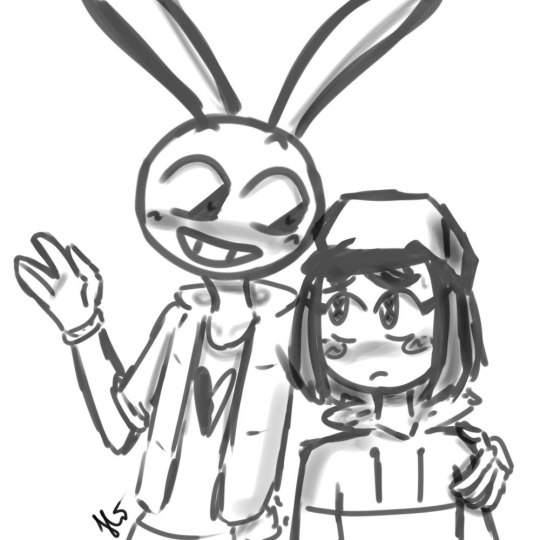
Is this really a sketch based on my AU!!!???
I’ll draw more for you, I promise, but when I get bored.
I need to learn how to draw Pomni.
#digital circus#the amazing digital circus#funny bunny#funnybunny#jax x pomni#pomni x jax#tadc pomni#tadc jax#your boyfriend#au yb × tadc
21 notes
·
View notes
Text
hey girl sorry um. we stabbed your boyfriend in the senate house. yeah a seer told him to beware the ides of march but he didn't listen. brutus and cassius got him. i'm so sorry
37K notes
·
View notes
Text
so sorry to tell you this but we accidentally put your boyfriend in the wash with a pink sweater. he’s ok but he’s pink now. yeah, all of him. and honestly?? it’s kind of a good look!!
40K notes
·
View notes
Text
Yeah sorry we put your boyfriend in the corner. Yeah, he’s in the spotlight, losing his religion. Yeah he’s trying to keep up with you :/ oh no I’ve said too much
27K notes
·
View notes
Text
Yeah my partner and I actually got engaged because in a boyfriend4boyfriend relationship it was getting too dangerous to browse tumblr. One of us was always getting pickled or being threatened by a tsunami or trapped in a narrative. It was really cutting into our quality time.
16K notes
·
View notes
Text
hey girl just wanted to let you know that your boyfriend came on tumblr and drowned in the vanilla extract sea. yeah sorry :/
#tumblr#tumblr polls#polls#vanilla#vanilla extract#your boyfriend#sorry about your boyfriend#boyfriend
14K notes
·
View notes
Text
hey bad news. ur boyfriend. yeah he turned around. yeah man sorry his love for you ultimately became his downfall. yeah sorry u gotta go back to the underworld :/
12K notes
·
View notes
Text

My tumblr sexy man wall
#boyfriend to death#ren hana#btd strade#lawrence oleander#br<3ken colors#delivery guy#damon#rasmus#rottendinner#the price of flesh#tpof#celia lede#derek goffard#mason heiral#the groom of gallagher mansion#elias gallagher#dachabo#somethings wrong with sunny day jack#sunny day jack#blooming panic#my dear hatchet man#lovers trophy#lurking for love#14 days with you#error143#date with death#14dwy#the kid at the back vn#your boyfriend#yb peter
2K notes
·
View notes
Text
Sorry about your boyfriend. The walls began to tear. Not the walls of the train but those of his false and hollow reality. Yeah, he’s twisting in his thrall to yog-sothoth. All the doors are open now. Sorry.
#tumblr collective boyfriend#your boyfriend#the mechanisms#the bifrost incident#has this one been done yet?
10K notes
·
View notes
Text
hey sorry but I put your boyfriend in a poll and no one voted for him. yeah he got like one percent of the votes. the people in the tags are laughing at him. sorry
12K notes
·
View notes
Text


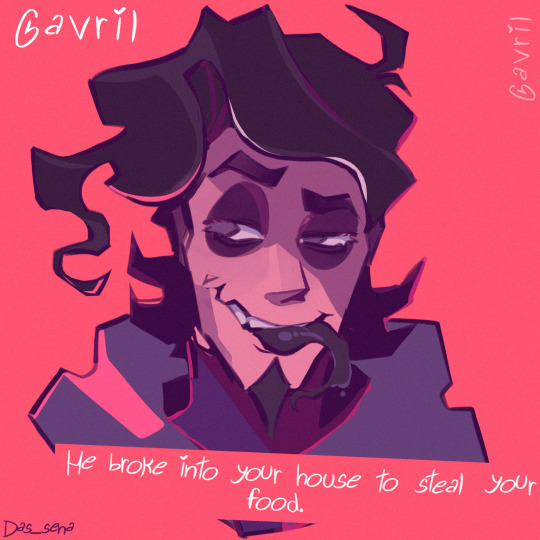
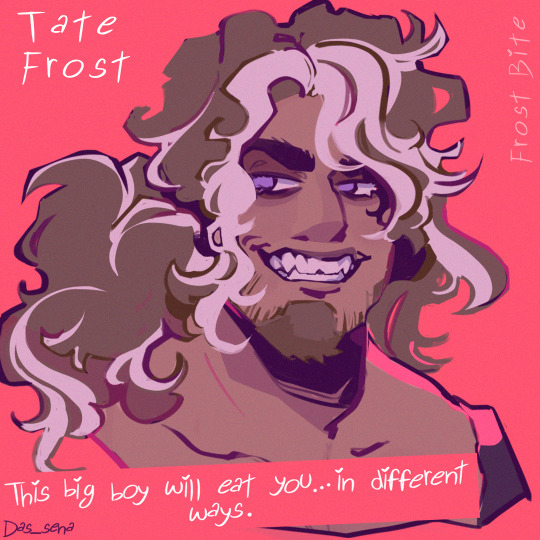
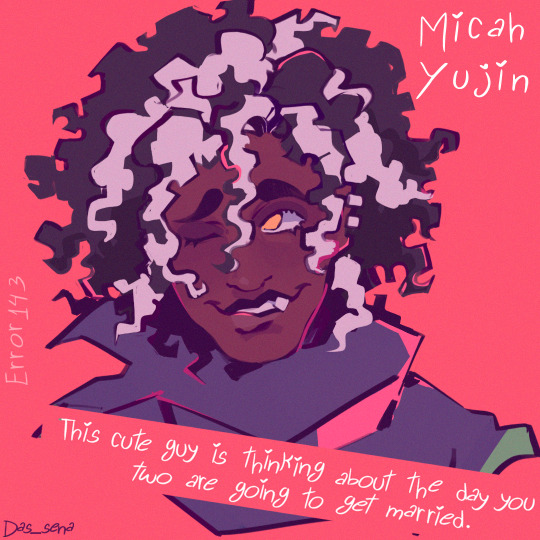
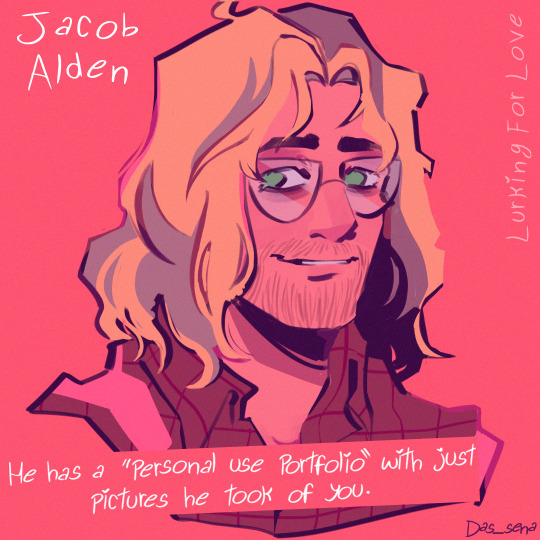
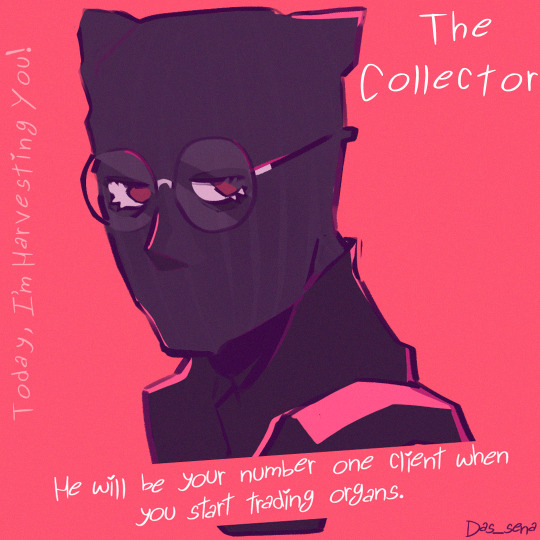
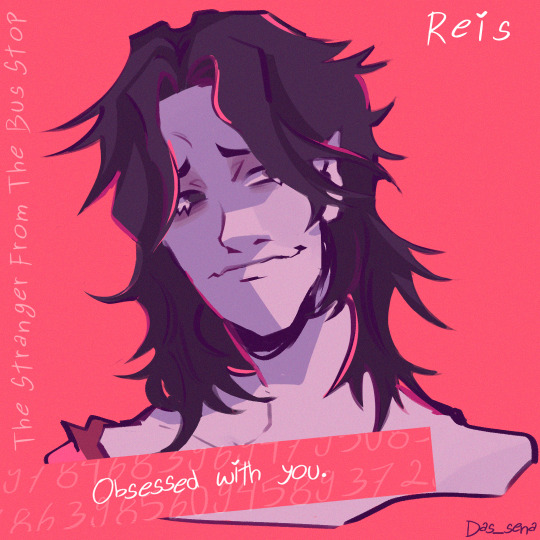
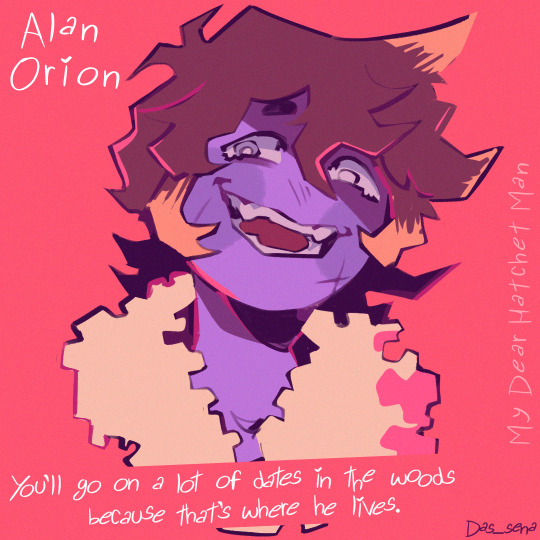

𝘾𝙝𝙤𝙤𝙨𝙚 𝙮𝙤𝙪𝙧 𝙗̶𝙤̶𝙮̶𝙛̶𝙧̶𝙞̶𝙚̶𝙣̶𝙙̶ 𝙛𝙖𝙫𝙤𝙧𝙞𝙩𝙚 𝙫𝙞𝙨𝙪𝙖𝙡 𝙣𝙤𝙫𝙚𝙡 𝙗𝙤𝙮
Eu estive jogando alguns desses jogos e fiquei com vontade fazer algo parecido com o que eu tinha feito com os personagens de slasher a um tempinho atrás.
Não sei porque coloquei o pobre Micah no meio desses bastardos, ele é o único normal ali, o único não lunático, a única opção boa...(mas eu escolho o Tate)
#alan orion#my dear hatchet man#the collector#today im harvesting you#gavril#jacob alden#john doe#lurking for love#micah yujin#error 143#peter your boyfriend#your boyfriend#strade#boyfriend to death#tate frost#frost bite#the stranger from the bus stop#visual novel
6K notes
·
View notes
Text
Work night - YBG comic
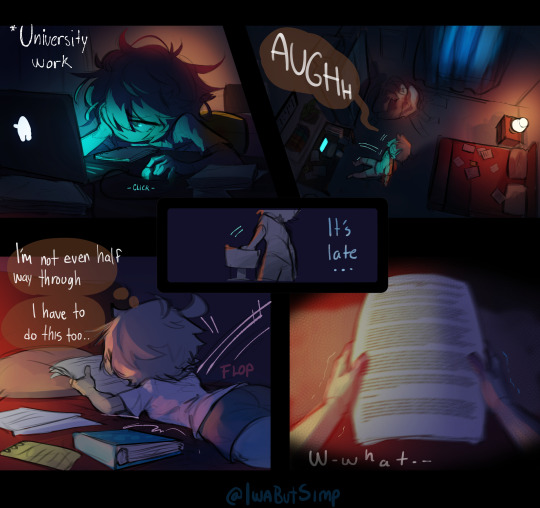
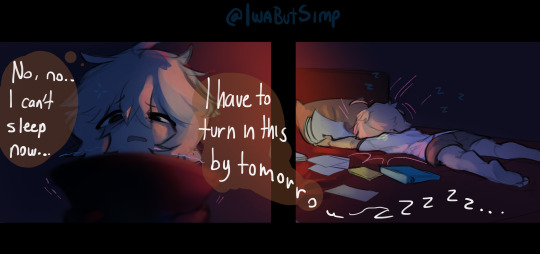

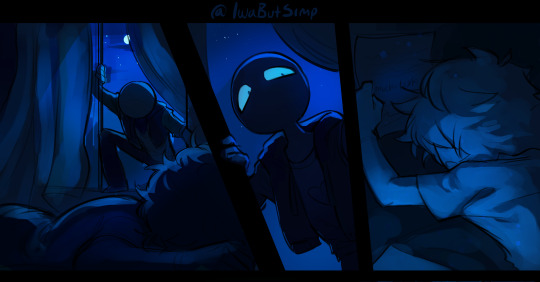
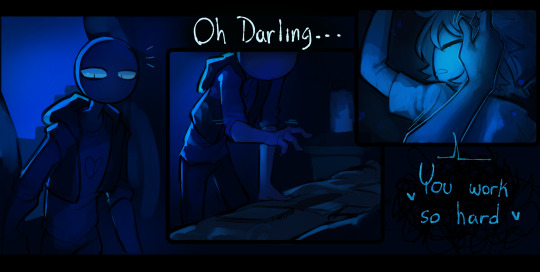


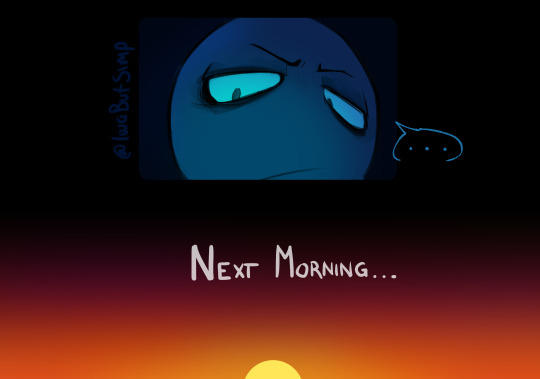

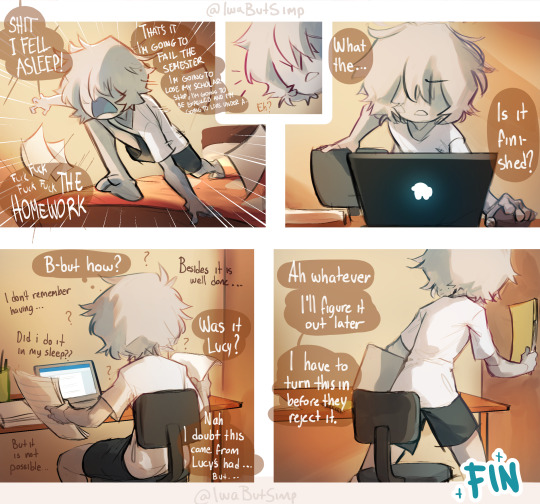
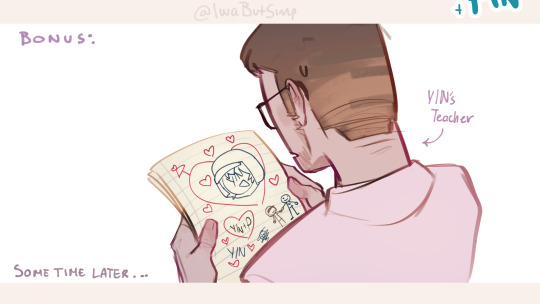
Heyyy hi there, long time no see haha (geez I've been inactive for a long time sorry ;;;;)
Apparently I hadn't adapted very well to tumblr and I left it for a while to do other things, but when I wanted to make this comic I was looking for a good medium to publish it and that the quality wouldn't be affected. It was then that I remembered that I had a Tumblr account and well----
when I logged in I was surprised by the amount of reactions that my first and only publication had.
I literally almost fell off my chair haha, I can't believe I had so much support. Seriously thank you so much to the people who liked my art and decided to follow me ;;;;A;;;. Sorry to leave you with a blog full of cobwebs.😔
But well, here I come back to show one of my comics of this beloved golf ball head.💙
I might use this tumblr to upload only comics or something like that, it will depend if people are still looking for more of this interesting character hehe or who knows.
Anyway I hope you like it and enjoy the comic ✨
#your boyfriend game#yourboyfriendgame#y0urb0yfriend#yourboyfriend#your boyfriend#yourboyfriend fan art#yourboyfriend peter#Peter#YB#your boyfriend (y/n)#your boyfriend fanart#your boyfriend peter#your boyfriend visual novel#your boyfriend visual game#yb x y/n#your boyfriend x reader#y/n#yandere#(y/n)#YB peter#Your boyfriend#peter x y/n#y/n x peter#fanart#tk#yb peter#yb tk#yb y/n#my art#your boyfriend peter x y/n
4K notes
·
View notes
Text
Why Do People Like Yanderes?
Hi everyone, my name is Diya, and this was going to be a YT video-essay-type-thing but I'm too poor to afford a mic and too busy with college to learn how to edit videos, so here's my vague exploration of the psychology behind why people like yanderes so much through the lens of my favourite Visual Novels.
TW for uh. yandere content. Mentions of sex, gore, and non-con, particularly in the last topic. This is more like the first draft of an academic paper so while it's not explicit, I do go into some detail.
Introduction
If you’re a fan of anime or visual novels, then you’re probably already aware of what a yandere is, or at the very least you’ve seen that one picture of Yuno Gasai. Still, for the sake of thoroughness, let’s take it from the tippy top. The term ‘yandere’ is a Japanese portmanteau of ‘yanderu’ – the progressive form of ‘yami’ – meaning ‘sick’, and ‘deredere’ which roughly translates to ‘loving’. Together, the word refers to someone who is – in short – extremely lovesick. Obsessive to the extreme, and with little morality to spare, the standard yandere is characterized by a dangerous fixation on a chosen target, often appearing shy and caring at first only to flip the script and become violently aggressive towards perceived threats (Kroon, 2010).
It should be noted that yanderes are not a strictly romantic or sexual trope. The Ancient Greeks classified at least six forms of love, from familial (storge) to guests (xenia). Modern psychologists may distinguish love as either Companionate or Passionate (Kim & Hatfield, 2004) or consisting of three dimensions of Intimacy, Passion, and Commitment (Sternberg & Sternberg, 2018). Realistically, possessiveness shows up in a variety of relationships. However, people are generally primed to view certain dynamics as inherently amorous. Societal norms tend to encourage the idea that romantic bonds ought to rank above all others, and therefore if Person A is bizarrely fixated on Person B, then clearly there must be an element of sexual interest involved regardless of the actual relationship between the individuals in question.
Regardless, yanderes remain quite popular in fiction. Many dismiss it as a fetish, which it can be, but that isn’t the case for everyone. While there is nothing wrong with indulging in kinky fiction, not all of us get horny at the thought of being chained up in someone’s basement, no matter how hot our captor may be. So why is it so pervasive? Why is this trope so appealing that most writers cannot help but include at least a single line of dialogue implying that – if circumstances had been ever so slightly different – my wholesome shoujo romcom might have turned into a psychological horror?
Hybristophilia
‘Hybristophilia’, also known as Bonnie and Clyde Syndrome after the titular criminal couple, is a word is derived from the Greek word ‘hybridzein’ meaning ‘to commit an outrage against someone’ and ‘philo’ which means ‘a strong preference for’. Sexologist John Money reportedly defined it as a paraphilia in which an individual is sexually aroused by a partner who has a predatory history of hurting other people (Money, 1986, as cited in Matuszak, 2017). In his book, Serial Killer Groupies, true crime and crime fiction author RJ Parker distinguished two forms of hybristophilia: passive and aggressive. The former is when an individual contacts a criminal with the intention of striking up a relationship with them, allowing themselves to be seduced and manipulated but having no interest in committing a crime themselves. The latter are far more dangerous, as the individual not only derives sexual pleasure from their partner’s atrocities but are active participants in carrying out or covering up the crime. To quote Griffiths (2013, as cited in Pettigrew, 2019):
“[They] help out their lovers with their criminal agenda by luring victims, hiding bodies, covering crimes, or even committing crimes. They are attracted to their lovers because of their violent actions and want to receive love yet are unable to understand that their lovers are psychopaths who are manipulating them.”
In some ways, hybristophilia is the nearest thing we have to a realistic understanding of why people love yanderes. I mean, much of the fantasy surrounding such characters and their media tend to be filled with posts begging to be spat on or calling the rightfully terrified main character ungrateful for being a teeny bit upset about finding surveillance cameras in their ceiling. However, enjoying fictitious immoral activity does not predict real perpetration, so what does? There exists little consensus amongst psychologists as to what sparks this particular predilection, and that was strange to me. You would think there would be more studies into this topic, in spite of or perhaps because of its controversial nature. Heck, that one dude wouldn’t shut up about white women’s obsession with Bundy and Dahmer, and I assumed he had gotten that information from somewhere, but it turns out that was just him using modifiers to justify sexism.
However, I believe that we can hedge a few guesses, and over the course of my research, I’ve organized the main rationalizations under four umbrellas which I will explore through the lens of my favourite yandere-themed Visual Novels. Please keep in mind that most of these games are rated as mature due to sexual scenes and/or gore. Additionally, in the spirit of transparency, this ramble will be focused exclusively on male or masculine yanderes. So, without further ado:
Call Me Bob the Builder Because I Can Fix Them
If you’re familiar with DC Comic’s Batman, or just happen to have attended any costume event held over the span of the last 20+ years, you may be familiar with the character of Dr. Harleen Quinzel, better known as Harley Quinn. Initially created as the Joker’s one-off sidekick in Batman The Animated Series, she was so well-received by audiences that she became a recurring character in the cartoon and was eventually given a proper origin story in the form of a one-shot titled Mad Love.
Harley’s origin story has seen some alterations over the past decades, but the core aspects remain largely untouched. In the beginning, Harleen Quinzel was a promising young woman who wanted was a degree from the university’s prestigious psychology department, which she gained through…less than scrupulous means.
(Listen, I’m not sure if the authors were leaning on the Dumb Blonde stereotype, or if they simply thought that casting her as a genuinely bad student would make her later actions more believable. Either way, the idea of Harley as someone with a legitimate PhD came later)
After landing an internship at Arkham Asylum – a half-hospital and half-prison straight out of the 1870s that might as well be built out of one-ply tissue-paper soaked with gasoline and left next to a crate of fireworks – Harleen set her sights on the then incarcerated Joker. At the start, her fixation on the criminal wasn’t remotely sympathetic. She didn’t want to help him, she wanted to use him. Harleen Quinzel wanted piggyback off his infamy and write a tell-all tale detailing what sort of messed up childhood resulted in Gotham’s Clown Prince of Crime. Yet the more she interacted with him, the more the Joker took advantage of her empathy. By the end of their sessions, Harley no longer saw him as a violent serial killer with a clown schtick, but as a “lost, injured child looking to make the world laugh at his antics.”
But Diya, you may be asking, what does this have to do with the video? The Joker never loved Harley, and it could even be argued – as Shehadeh did in a 2017 essay – that her obsession with the pasty-faced clown is more akin to Histrionic Personality Disorder. While that may be the case, I believe that Harley’s story provides one of the reasons yanderes are so popular: their backstory.
Whether they were abandoned by their family, bullied by their peers, experimented on by evil scientists, starved on the streets, died under mysterious circumstances and then trapped in a haunted VCR tape for decades, or are simply so impossibly inhuman that they frankly do not understand why it isn’t socially acceptable to imprison their crush in a pocket dimension made of meat and non-Euclidean geometry, yanderes often have fairly sympathetic or at least understandable explanations for why they are Like That. Your mileage may vary significantly depending on how much you sympathize with these motives, but the point is that yanderes always make sense to some degree. Their morality and priorities may be twisted or even completely incomprehensible, but the audience almost always knows the reason, and that can be comforting. In the real world, other people aren’t always straightforward, and we never really know what they’re thinking, but narrative coherence demands a semblance of internal consistency lest the audience end up frustrated and confused. So yanderes are not only easy to sympathize with, but also fairly predictable. In-universe they may be unhinged freaks with a blood fetish, but to you watching from behind the safety of the screen they’re just acting out the script written for them based on a prototype. And if you understand the why behind their loose gears, then you might just be able to put them back together again.
The concept of rescue romances or “I Can Fix Them” has been around in our stories for thousands of years. The Epic of Gilgamesh detailed how Shamhat essentially ‘civilized’ wild man Enkidu through ritual lovemaking, and a concerning number of religions push the idea that women are dutybound to save men from the follies of sin. Yet men are not exempt either, with one notable example being the German fairytale, King Thrushbeard. Call it what you will regardless: Knights in Shining Armour, the Florence Nightingale Effect, or a plain old case of Because You Were Nice to Me, studies have shown that human beings generally like helping [DA2] others, even when the reason doesn’t necessarily stem from pure altruism. I will delve deeper into this later, but care and compassion are deeply ingrained in human nature, and arising from those roots is the appeal of this mentality: You can save them. You can change them. You can make them better. You are special, and the way you treat this person carries a weight that has not and will never be matched by anyone else for the rest of their mortal or immortal existence.
The illusion is a delicious one, especially if the person you’ve helped turns out to be a billionaire CEO with cash to burn, a super powerful ghost king willing to raze continents to dust for you, a demon having fun on a Friday night, or just your average hot creep with a knife. Moreover, different people have different ideas of what ‘fixing’ even means. Maybe you want to single-handedly rehabilitate your yandere into a functional member of society. Maybe you’re cool with the incessant stalking but would like them to stop slaughtering your friends, family, and local service workers. Maybe you want to make them much, much worse.
Not only do yanderes provide immediate proof that your actions have a tangible impact on the lives of others, but the fantasy also includes the desire of being seen as special. Of being admired and adored by someone whose life you inexplicably made better by virtue of simply being yourself, or an idealized version of yourself. In this fictional world, in this imaginary setting, the person you are is so uniquely, impossibly irreplaceable to someone. And if that’s the case then they can’t risk losing you, can they?
The Allure of Obsession, or ‘Til Death Do Us Part (Literally)
It shouldn’t be necessary, but here is my obligatory disclaimer anyway. Ahem: obsession is not a good thing in real life. Fixating on another human to the detriment of your own wellbeing and that of those around you is dangerous, as is encouraging someone else to obsess over you. You might think you are being worshiped, but real life is not a visual novel. The outside world doesn’t come with an age rating, the author’s guiding pen, and a convenient fade to credits sequence once you’ve reached an ending. The consequences will still be there in the morning, so don’t do it. Just don’t.
PSA out of the way, it’s natural to want to be wanted. Maslow’s Hierarchy places it just above physical safety, but I’d argue that it could easily be compared to baser drives. According to many psychological and anthropological studies, much of humanity’s continued survival and environmental dominance is largely attributed to our ability to form groups, cooperate with one another, and maintain complex interpersonal networks. Social support, intimacy, and a sense of belonging are linked to emotional and physical benefits, such as more optimistic health perceptions, higher subjective well-being, increased creativity and innovation, and greater self-efficacy (DeWall & Bushman, 2011; Harandi et al., 2017; Wang & Sha, 2018). Therefore, it’s perfectly understandable that rejection of any sort would be construed as a threat.
But if someone is obsessed with you, then you have no reason to worry about that, right? No more nights spent agonizing over how they feel about you, asking yourself whether your last text made you sound too desperate, or if you’re boring them because you spent the past hour info-dumping about Stardew Valley farm layouts. With a yandere, there will never be any doubt that they care about you. Sure, they might go about it in weird, manipulative, and insidious ways that violate your physical and mental autonomy, but you can’t deny their loyalty. They do love you in their own bizarre way. You are the sun around which they orbit. When you’re in the room, no one else exists. Every single messy flaw is just another bullet point on the mile-long list of why they adore you.
In essence, yanderes are not only attentive, but their love can be virtually unconditional. A yandere might know everything about you, and still revere you. It’s unhealthy as hell and you might genuinely question their taste, but it can be tempting to pretend that all of you, right down to the ugliest parts of yourself – the traits and choices that you would never share with another living soul even at gunpoint – are worthy of understanding, if not open praise and affection.
Attractiveness, or Okay but Have You Considered That They’re Hot Though?
.
.
.
I mean what am I supposed to say here? They’re hot, what do you want from me?
No, but in all seriousness, fictional media paints an idealized version of the world, and most yanderes are hot because they have the freedom of existing purely behind that screen; artfully arranged and edited to forever appear compelling to anyone who happens to enjoy their particular style. And there are a lot of styles to choose from. Whether you want them pretty faced and disarmingly cute, or scarred up and big enough to pin you like a butterfly, yanderes come in a wide variety of shapes and sizes that are meant to pique your interest and draw you in like a naïve little fish being lured towards the mouth of an angler fish, unwilling to believe that anything bad might happen to us when the bait is this pretty.
This is often referred to as the Halo Effect, a form of cognitive bias referring to the tendency for people to assume that a single obvious positive trait must be associated with other positive traits. The go-to characteristic is typically physical attractiveness, but a nice voice, good humour, and cooking skills are also factors which serve to influence our perceptions.
So, conventional physical attractiveness is one thing, but that’s only skin deep. What about beyond that? After all, the yandere still has to talk to you before they enact their master plan of tying you up in their basement until Stockholm Syndrome kicks in.
When I showed my friend a picture of John Doe from the game John Doe, she told me that he looked like a creepy slob, and she’s far from the only person who’s ever thought so. Look at them. I feel like if I tried to comb that hair it would simply eat me, and some of the CGs really put the scopophobia in Scopophobia Studios. I love Doe, but he is not hot, and he doesn’t behave in a normally appealing way either. If the player chooses not to take a bath, Doe will immediately comment that you “smell good” before following you home, breaking into your house, and leaving a bloody organ on the floor for the player to trip over. Many yanderes can at least fake a veneer of normalcy, but from the get-go Doe doesn’t even bother to pretend he’s anything less than an otherworldly creature stuffed into a vaguely person-shaped meatsuit. In an effort to find out why so many people had latched on to Doe – including me – I shopped around social media and YouTube for answers, and what I found was a widely unanimous sentiment.
While some were drawn to his fun design and goofy personality, most simply thought that he wasn’t inherently malevolent, just very confused. In addition to being a supernatural being with a completely alien axis of morality, Doe’s meta-awareness and unbridled attempts at winning the player’s affection lends him quite a bit of support from the audience, especially if you yourself also happen to struggle with social cues and relate to his pure earnestness. In Ending 7 of the extended version, the player character has the option to tell Doe – who has altered himself to pass as more ‘normal’ – that they prefer who he truly is, at which point he grows visibly flustered and sports an adorable pair of literal heart-shaped pupils.
Whether they’re charismatic, seductive, cute, sweet, funny, nurturing, or generous, the best yanderes have engaging personalities. Even while they’re committing truly heinous crimes against God, man, and your guts, you still kinda want to hang out with them, and you want them to acknowledge you as being just as interesting. And this is all fine in fiction because you’re the one in charge, and if you ever get bored or uncomfortable or busy with something else, then you can simply close the tab or window with zero consequences, which brings us to the final and most important reason.
Power Dynamics and Consent in Fantasy (I Couldn’t Think of a Joke Here Guys, This Is Kinda Serious)
Once again, I feel that I must preface this section just for the sake of my own peace of mind: sexual coercion and assault are vile and disgusting crimes that should never be emulated or tolerated in the real world. We are speaking purely of fictional media, specifically adult-oriented media in this case, so please be mindful.
In 2009, Bivoni and Critelli conducted a study on 355 undergraduate women with the goal of assessing the reasons behind fantasies of non-consent. At the time, there were two leading explanations of this phenomenon. One stated that women with high libidos but repressed views of sex used these imaginary scenarios to alleviate the guilt they had grown to associate with sex. Because the simulation was a purely mental exercise and they themselves were cast as helpless victims in the scenario, they were able to remain blameless while still finding sexual gratification. The second stated that these fantasies were an expression of liberation by women who were adventurous and comfortable enough with their own sexuality to engage with taboo ideas that they weren’t at all interested in performing in real life. Which do you think was more common?
.
.
.
If you guessed the second option, you’d be right. The study found that of the 220 women who had experienced such fantasies, 45% found theirs erotic, 46% were mixed, and only 9% reported pure aversion. One justification for this outcome relies on psycho-biological theories, for example masochistic preferences or the unintended activation of the sympathetic nervous system and subsequent mis-attribution of arousal. Other reasons have to do with higher order thinking and are tied to the power dynamics within such fantasies. On the surface is the appeal of being so desirable to someone that they simply cannot control themselves, but then there is a deeper impulse, which the researchers referred to as Adversary Transformation. To quote the article: “[fantasies] involve a struggle between an assailant and a potential victim in which it is relevant to consider who is the winner and who is the loser. At one level, it is a struggle over sex, but the woman's non-consent may be feigned or token. At another level, the woman may be seeking a victory that is not about whether sex occurs, but about what happens emotionally between the protagonists.”
Basically, the imaginary perpetrator may have ‘won’, but the self-character need not have ‘lost’.
Media provides an extra layer to the illusion, one that you as the viewer have absolute control over. If you are choosing to engage with a piece of media that explicitly labels itself as including R18+ yandere content, then you clearly have some expectations, and that background awareness goes a long way in reducing long-term discomfort and allowing audiences to make informed decisions. If you don’t like the plot, you can simply turn it off it with the click of a button, and when the screen goes dark it’s not like the yandere is going to punish you for saying no. Strade isn’t going to break into your house with a drill, there are no homicidal clown ghosts hiding in your TV, and no suspicious pink-haired hackers watching your webcam. They aren’t real, and the consequences aren’t real either. You have all the power here.
Conclusion
In summary, Yanderes are appealing for a variety of reasons. Whether you want to save them, think they’re attractive, wish to indulge in a dream of being utterly coveted, or simply enjoy a bit of spice in your me-time, it’s obvious why the trope has persisted for so long and will likely continue to do so. If you enjoy yanderes but are worried that having a taste for the less wholesome side of things might imply something about who you are as a person, don’t be. The notion that fantasies and media preferences directly reflect subconscious desires is not only painfully out of date debunked nonsense but also indicative of restrictive ideologies wherein bad thoughts = sin. This isn’t 1984. You haven’t committed a thought-crime by having a weird kink. You aren't going to superhell for fantasizing. The human mind is hardly ever so mathematically rational, and the point of fiction is to allow us to safely engage with and explore various ideas, provided the everyone involved is mentally, chronologically, and emotionally mature enough to do so.
Thank you all for listening to me. If you learned something or were just a little bit entertained. If you're curious about knowing more, I've listed my sources below
REFERENCES
Bivona, J. M., & Critelli, J. W. (2009). The Nature of Women’s Rape Fantasies: An analysis of prevalence, frequency, and contents. Journal of Sex Research, 46(1), 33–45. https://doi.org/10.1080/00224490802624406
Critelli, J. W., & Bivona, J. M. (2008). Women’s Erotic Rape Fantasies: An Evaluation of Theory and research. Journal of Sex Research, 45(1), 57–70. https://doi.org/10.1080/00224490701808191
DeWall, C. N., & Bushman, B. J. (2011). Social acceptance and rejection. Current Directions in Psychological Science, 20(4), 256–260. https://doi.org/10.1177/0963721411417545
Flynn, F. J., Reagans, R., Amanatullah, E. T., & Ames, D. R. (2006). Helping one’s way to the top: Self-monitors achieve status by helping others and knowing who helps whom. Journal of Personality and Social Psychology, 91(6), 1123–1137. https://doi.org/10.1037/0022-3514.91.6.1123
Harandi, T. F., Taghinasab, M. M., & Nayeri, T. D. (2017). The correlation of social support with mental health: A meta-analysis. Electronic Physician, 9(9), 5212–5222. https://doi.org/10.19082/5212
Hazen, H. (1983). Endless rapture: rape, romance, and the female imagination. https://openlibrary.org/books/OL3161300M/Endless_rapture
Kroon, R. W. (2010). A/V A to z: An Encyclopedic Dictionary of Media, Entertainment and Other Audiovisual Terms. McFarland.
Matuszak, M. (2017). Hybristophilia White Paper. https://static1.squarespace.com/static/55dfd21ee4b0718764fb34cc/t/5cb7cabee5e5f00ab13be58b/1555548863275/Hybristophilia+White+Paper.pdf
Oarga, C., Stavrova, O., & Fetchenhauer, D. (2015). When and why is helping others good for well-being? The role of belief in reciprocity and conformity to society’s expectations. European Journal of Social Psychology, 45(2), 242–254. https://doi.org/10.1002/ejsp.2092
Parker, R. (2014). Serial killer groupies. RJ PARKER PUBLISHING, INC.
Wang, T., & Sha, H. (2018). The influence of social rejection on cognitive control. Psychology, 09(7), 1707–1719. https://doi.org/10.4236/psych.2018.97101
#reference list is completed!#yandere#sunny day jack#my dear hatchet man#mdhm#stnaf#ddlc#john doe#boyfriend to death#tpof#degrees of lewdity#your boyfriend#14dwy#br<3ken colors#camp willowpeak#br0ken colors#obey me#favour vn#binary star hero
1K notes
·
View notes
Text
your boyfriend is catatonic in my arms. yeah. yeah he's crying about causing so much harm, or something. he's pounding his head against the kitchen floor. he's— yeah. yeah he apologized for his life and ever entering yours.
#will wood#will wood and the tapeworms#wwatt#wwattw#in case i make it#icimi#against the kitchen floor#your boyfriend meme#your boyfriend
6K notes
·
View notes
Text
Sorry, your boyfriend is frozen in there and we're out here and he's the sheriff and we're frozen out here and we're in there and I just remembered we're out here. Still, what I want to know is where's your boyfriend
4K notes
·
View notes
Text

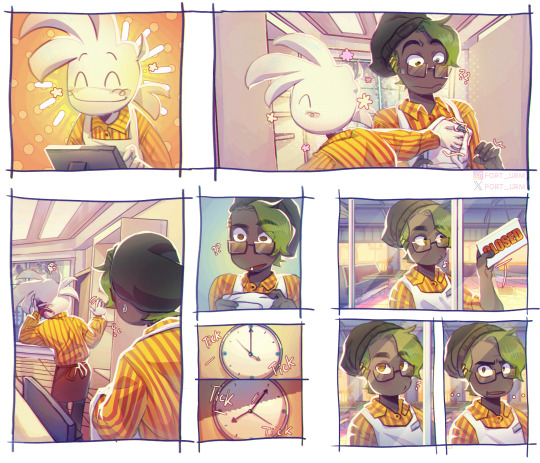


730 notes
·
View notes